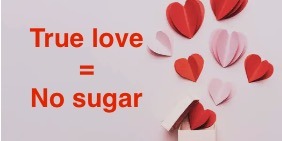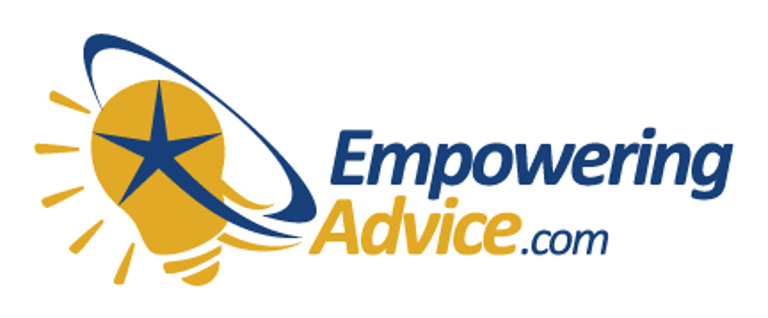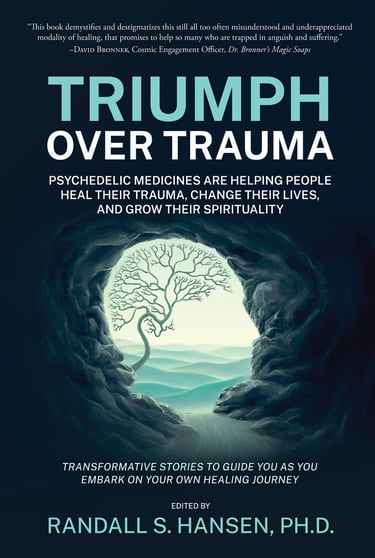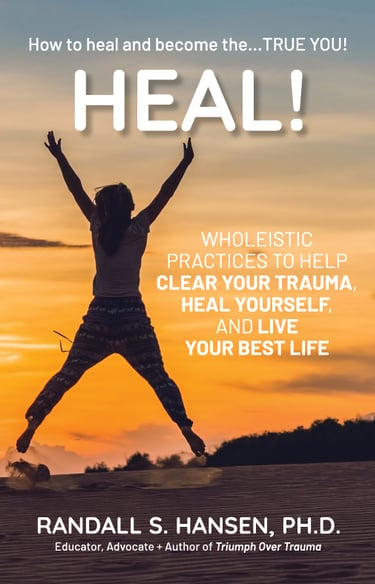Stop Poisoning Your Loved Ones on Valentine's Day
Poisoning your loved ones? Have I lost you already?
This article is not anti-Valentine's Day, though it is a bit of a silly holiday.
This article is actually life and love-affirming because the more sugary candies and ultra-processed items you gift people to show your love, the more you are actually NOT showing your love because by doing so, you are slowly poisoning them.
Think this advice is radical? Are you still of the belief that sugar in moderation is okay? Do you even know how much sugar you're consuming daily? (If not, track it over several days and you will be stunned.)
Based on dietary studies of average people, the amount of added sugars in our meals and snacks means that we are eating dessert EVERY single time we eat. Breakfast of Cheerios and fruit punch is dessert; a Subway sub at lunch is dessert; the snack of salty crackers is dessert; the dinner of Freschetta Four Cheese Pizza with a Coke or glass of wine is dessert. Why? Because all these so-called foods and drinks contain high amounts of added sugars (and little, if any, nutrients).
Please keep reading -- and by the end of it, I hope you'll choose healthier ways to show your love. Perhaps a home-cooked meal, or a romantic hike at sunset, or a visit to a local conservatory where you can admire tropical and sub-tropical plants, a romantic day trip, or a loving back rub or massage. (Of course, there are also the other "standard" gifts of jewelry, lingerie, spa getaways, stuffed animals.)
Why No Candy or Chocolates?
We have been sugar-bombed, sugar-bamboozled, and all of us are slowly dying from sugar poisoning. Almost all the items in your supermarket that are not fresh produce or meats contain added sugars -- it's that ubiquitous in our food supply.
Most of the Western world, especially in the United States, consumes an unusually abnormal amount of sugar -- daily. Experts say -- between all our meals and snacks, as well as our drinks -- that we consume about 22+ teaspoons of sugar daily... that's an added half to three-quarters of a cup of sugar a day -- and more than 80+ pounds of added sugar each year!
You may have grown up learning that sugar was fine, or that a little added sugar is just a few empty calories. Or you may simply not bother looking at the labels of what you buying/eating, but once you know the truth, there's no going back.
Added refined sugars can be found in just about everything we buy, including:
Breakfast foods
Breads/Rolls/Buns
Jams/Jellies
Granola
Crackers/Savory snacks
Yogurt
Sauces/Ketchup/Condiments/Salad dressings
Fruit juices
Sodas
Energy/Sports drinks
Flavored coffees/teas
Creamers
Peanut butter
Protein/snack bars
Canned soups
Canned fruits
Smoothies
Flavored waters
"Low-fat" anything
Fast food anything
How can you identify added sugars in your food? (There are more than 200 names food manufacturers use for sugar!) Look at the list of ingredients on the label. Here's the key to decoding added sugars:
Anything ending in "ose" is a sugar (such as sucrose, fructose, dextrose, maltose)
Anything with syrups (such as corn syrup, high fructose corn syrup, rice syrup)
Anything with sugar (such as raw sugar, brown sugar, confectionary sugar)
Anything with added honey, molasses, agave, fruit nectars
Note: As you look at the list of ingredients, you may also be sickened by the amount of added chemicals and dyes added to your "food."
Finally, many nutrition experts suggest you only shop the perimeters of the store -- produce, meats -- and skip all the aisles of packaged, fake foods that are high in sugar (and other toxic ingredients).
Dangers of All Refined Sugars
I am not a sugar scrouge, nor am I trying to "ruin" Valentine's Day. In fact, I am trying to help you celebrate love (for yourself and others) by informing you of the dangers of refined sugar.
The sugar industry (and other researchers) has known about the dangers of refined sugar for decades -- since the 1950s (and perhaps earlier). But the real breaking point came in the 1980s when the "low-fat" craze became a government mandate and food manufacturers dumped fats and replaced the fats with a lot of added sugars.
Don't we need sugar to survive? Will our brain shrivel and die without sugar? Here's where more confusion reigns. Yes, our bodies (specifically the energy-producing mitochondria) need glucose, but we can actually produce our own glucose; we don't need all the added sugars in our diets -- and especially not fructose, which the body cannot use and which goes directly to your liver, leading to fatty liver.
Here are the negative health outcomes of our obsession (or ignorance) about sugar:
Leaky gut (allowing pathogens to enter the bloodstream)
Insulin resistance
Diabetes (type 2)
Obesity/Weight gain
Dementia and Alzheimer's disease (now being called type 3 diabetes)
Chronic inflammation
Metabolic Syndrome
Heart disease
Cancer
Depression
Nonalcoholic fatty liver disease
Kidney failure
Gout (because of raised uric acid in the blood)
Stroke
Tooth decay
Final Thoughts About Sugar and Sugar Holidays
So many of our holidays and celebrations revolve around sugar -- whether candies, cakes, cookies, or themed holiday drinks.
Do you love sugar -- or do you love yourself and your partner?
Do you love sugar -- or do you love your children and grandchildren?
We NEED to get sugar out of our holidays -- and also out of our daily lives. We also need to eliminate these ultra-processed foods containing added sugar that dominate the supermarket and fast food restaurants.
The American Heart Association (AHA), dubious in many ways, but it recommends no more than 6 teaspoons of added sugar for adult women and no more than 9 teaspoons for adult men. Just two pieces of Russell Stover assorted chocolates has 16 grams of sugar, the equivalent of about 4 teaspoons of sugar. Williams Sonoma S'mores has 21 grams of sugar per serving (also two pieces), which is 5 teaspoons of sugar.
Lowering our sugar intake -- especially to zero -- is going to be hard; sugar surrounds us and is intertwined in our culture.
More importantly, sugar is severely addictive -- on the same level as cocaine, heroin, and other hard drugs, according to addiction experts. Not all people are addicted to sugar, but those who are finding it almost impossible to quit -- the cravings become so strong. If you can't quit on your own, please find support; your life depends on it.
Finally, some experts are suggesting that sugar is the TRUE gateway drug that leads to alcohol use disorder and addiction to harder drugs, such as oxycodone, methamphetamine, heroin, and fentanyl. (Note: drug overdoses are the leading cause of accidental death in the United States.)
Celebrate your love by celebrating health and longevity -- by skipping all the sugary stuff.
Additional Sugar/Valentine's Day Resources


Dr. Randall Hansen is an advocate, educator, mentor, ethicist, and thought-leader... helping the world heal from past trauma. He is founder and CEO of EmpoweringSites.com, a network of empowering and transformative Websites, including EmpoweringAdvice.com.
He is the author of the groundbreaking Triumph Over Trauma: Psychedelic Medicines are Helping People Heal Their Trauma, Change Their Lives, and Grow Their Spirituality and the well-received HEAL! Wholeistic Practices to Help Clear Your Trauma, Heal Yourself, and Live Your Best Life.
Dr. Hansen's focus and advocacy center around true healing ... healing that results in being able to live an authentic life filled with peace, joy, love. Learn more by visiting his personal Website, RandallSHansen.com. You can also check out Dr. Randall Hansen on LinkedIn.






